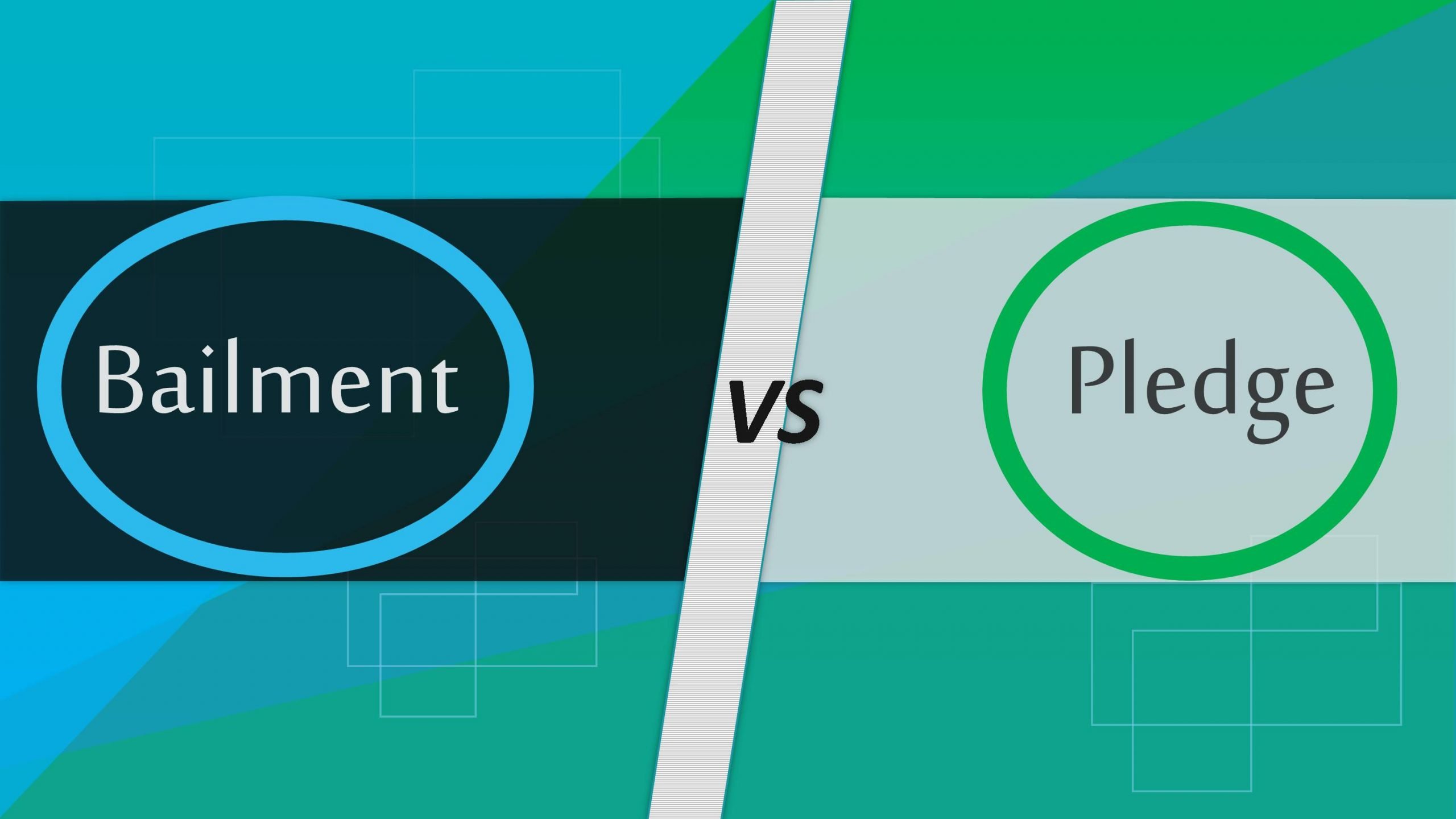There is plenty of example of Bailment in our day to day life. We borrow our friend’s bike or car or anything for personal uses is an example of Bailment. For the time being, in this article, we will study the difference between bailment and pledge.
But before we go ahead let us first understand the meaning and definition of pledge and bailment in short so that their differences can be grabbed easily.
A Bailment is a transfer or delivery of movable goods/property from one party/person to another person/party for any specific task or service or promise.
On the other hand, Pledge is defined as the delivery of movable asset/goods/property to secure debt/ loan or performance of a contract or promise.
Table of Contents
Bailment vs Pledge (Comparison Chart):
The pledge is a type of bailment that means a bailment is a broad term whereas a pledge is a narrow term. The difference between bailment and pledge lies in their purposes of delivering goods or property from one party to another.
See the following comparison table to quickly understand the difference between these two terms.
| Basis of Comparison | Bailment | Pledge |
|---|---|---|
| Meaning & Definition | Transfer of possession for general service or tasks | Transfer of possession for obtaining a debt or performance of contract. |
| Defined Under | Section 148, Indian Contract Act | Section 172, Indian Contract Act |
| Purpose | for service, repair, task, promise | for getting loans, performance of contract |
| Example | Mr X deliver his car to Mr Y for repairing. | Mr A pledge Gold to ICICI Bank to obtain a Gold Loan. |
| Parties | Bailee and Bailor | Pledgee/Pawnee and Pledgor/Pawnor |
| Rights to use the Property | YES (With permission of Bailor) | NO |
| Lien on the property | Can exercise a lien on property only for service and labour charges | Can exercise a lien on property even for nonpayment of interest. |
| Rights of Bailee/pledgee | Cannot sell the goods | Can sell the goods if the borrower defaults. |
Difference Between Bailment and Pledge:
Let us now study the head to head differences between bailment and pledge. We can consider the following basis of comparisons between both bailment and pledge.
1) Meaning and Definition:
A bailment refers to a transfer of movable goods from one party to another party for any specific purposes such as service, promise or need. Further, if the purpose is accomplished. the goods should return to the bailor.
On the other hand, a pledge refers to a transfer of movable goods/property to the lender (banks or financial institutions) or person as security to acquire a loan/debt or performance of contract or promise.
For more details, you can follow the link below.
What is a Pledge? Contract of Pledge
2) Defined As Per:
Bailment is defined as per Section 148, Indian Contract Act 1872 whereas Pledge is defined as per Section 172, Indian Contract Act 1872.
3) Purpose:
As the definition suggests, a pledge is exercised to get loans or performance of contract whereas bailment of goods or property is done for any service or task.
4) Example of Bailment & Pledge:
Suppose Mr X handovers his car to a car service centre (say Y) to get his car serviced, in this case, there is a transfer of property from Mr X to Y for car service. Hence such transfer of goods is known as a bailment. Moreover, Mr X who delivered his car is called a Bailor whereas Mr Y is known as a Bailee.
Now if Mr A pledges the Gold to the ICICI Bank to get a Gold Loan, in this case, the possession of Gold transfers from Mr A to ICICI Bank to avail a loan. Therefore, such transfer of possession of goods is known as Pledge. Also, here the Pledgor/Pawnor would become Mr A and Pledgee/Pawnee will be ICICI Bank.
5) Rights of Bailee/pledgee:
In the case of bailment, the bailee cannot sell the property/goods whereas the pledgee can sell the pledged property if a pledgor unable to repay the debt.
6) Right to use the Property:
The Bailee can use the property/asset kept with them whereas the pledgee cannot use the property pledged.
7) Can bailee/pledgee exercise Lien on the property?
The bailee can exercise a lien on the property only for nonpayment of service or labour charge, pledgee, on the other hand, can exercise a lien in case of nonpayment of interest.
Conclusion:
Hope this article would have cleared all your doubts regarding the difference between bailment and pledge. We can conclude the above lesson within three significant points.
- Bailment is the handover of goods for general purpose and Pledge used for a specific purpose such as obtaining debt.
- Bailee cannot sell the goods but can hold the goods if bailor doesn’t pay the service charge and Pledgee can sell the goods pledged if pledger defaults.
- Bailee can use the goods with the permission of the owner whereas Pledgee can’t use the goods pledged.
Recommended Articles:
Difference between Pledge and Hypothecation
Difference between Pledge and Mortgage
References:
